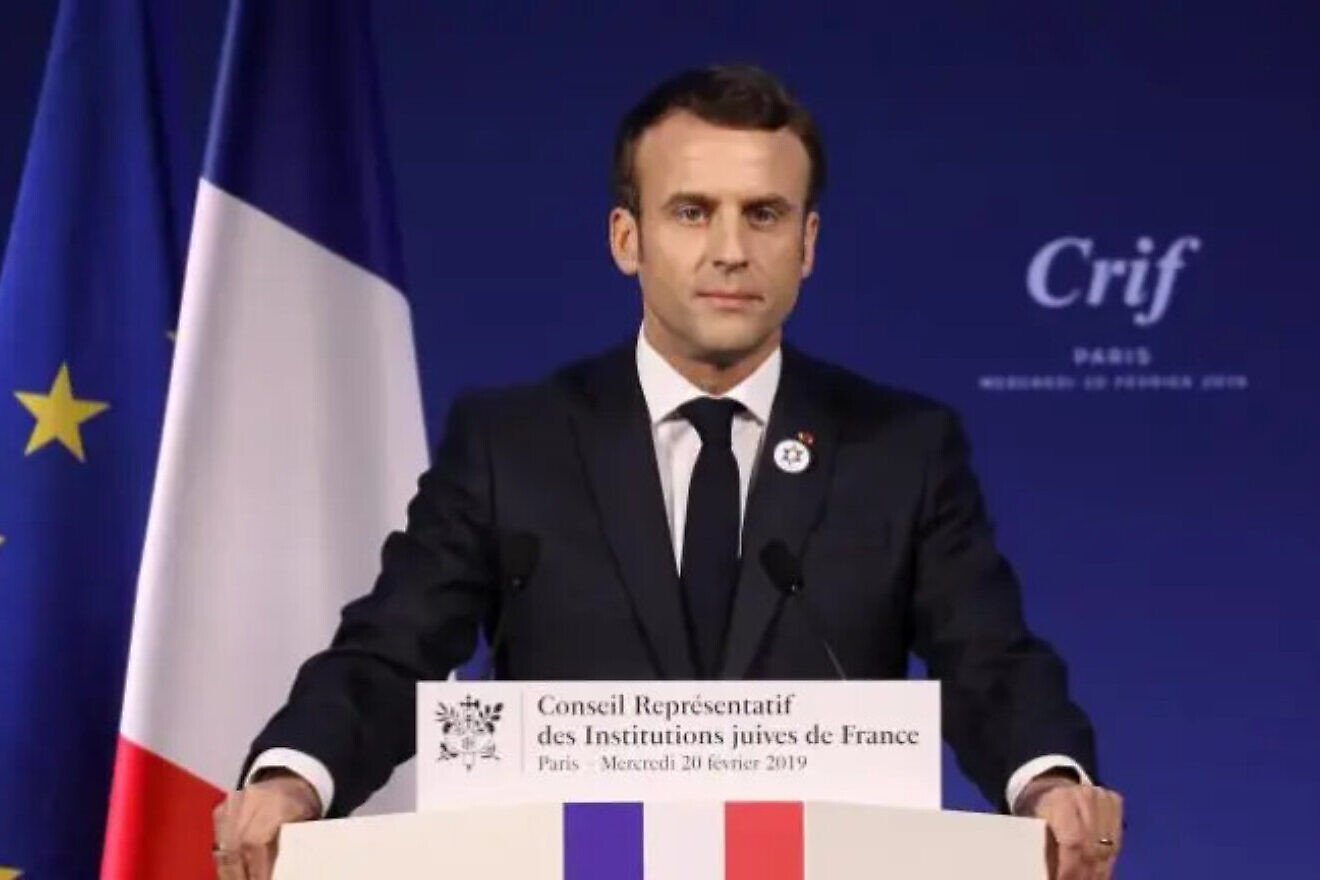by Jonathan Turley
Former CIA Director Brennan and other top officials reportedly 'lawyering up' as declassified documents contradict previous testimony
The release of declassified material has shed new light on the creation of the Russian collusion investigation and many of the names are crushingly familiar. Indeed, Congress is moving to "round up the usual suspects" in light of the new revelations. It is the story of the real Russian conspiracy: how high-ranking officials in the Obama Administration seeded this false claim with the help of an eager, unquestioning press corps.
OBAMA-ERA OFFICIALS MUM ON ALLEGATIONS OF 'MANUFACTURED' INTELLIGENCE LAUNCHING TRUMP-RUSSIA PROBE
Not surprisingly, the media, which spent years repeating the false Russian collusion claims, is doing a full-court press to kill the story. Yet, many of these key figures are retaining counsel in anticipation of the unfolding investigation. Many previously secured contracts with MSNBC or CNN, or book deals, where they doubled down on the false claims detailed in these new documents. Here are just a few of the usual suspects:
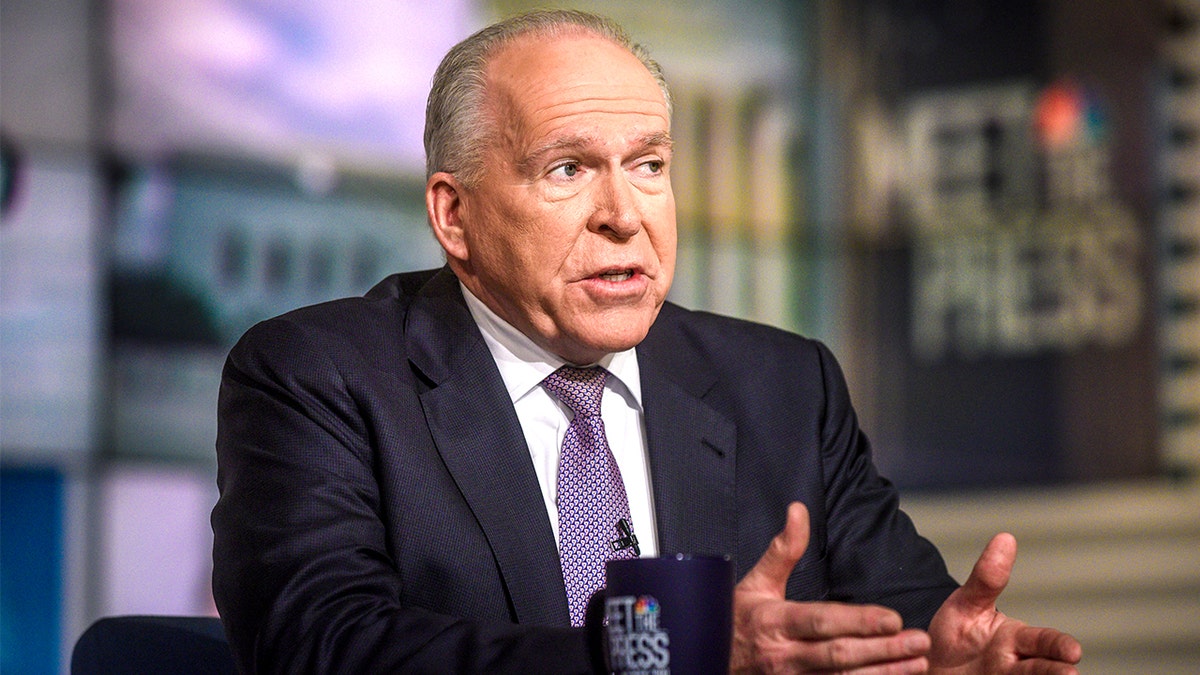
John Brennan, Former CIA Director; NBC News Senior National Security and Intelligence Analyst, appears on "Meet the Press" in Washington, D.C., Sunday, April 15, 2018. (William B. Plowman/NBC/NBC Newswire/NBCUniversal via Getty Images)
John Brennan, former CIA director
Brennan is arguably the most at risk in the new disclosures, which appear to contradict his prior testimony before Congress. On May 23, 2017, Brennan testified that the infamous Steele dossier "wasn’t part of the corpus of intelligence information that we had. It was not in any way used as a basis for the Intelligence Community Assessment that was done."
However, the new material shows that Brennan was the key figure insisting on the inclusion of the Steele dossier in an intelligence assessment, suggesting that the Russians did influence the election in favor of Trump.
Brennan not only intervened to include the dossier but overruled the CIA’s two most senior Russia experts, who said it "did not meet even the most basic tradecraft standards." One analyst recounted how "[Brennan] refused to remove it, and when confronted with the dossier’s main flaws, responded, ‘Yes, but doesn’t it ring true?’"
Notably, it was Brennan who briefed Obama in 2016 about Hillary Clinton's plan to create a Russian conspiracy "to vilify Donald Trump by stirring up a scandal claiming interference by the Russian security service." Months later, it would be Brennan who actively incorporated the dossier secretly funded by Clinton's campaign.
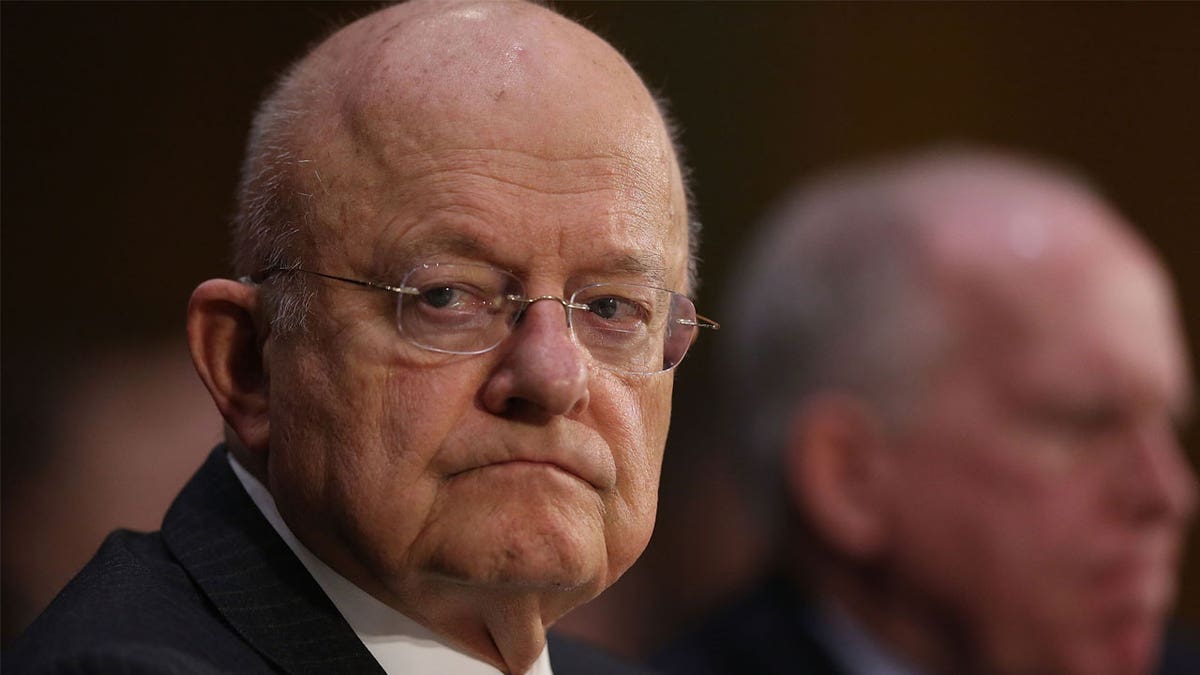
Then-Director of National Intelligence James Clapper and Central Intelligence Agency Director John Brennan (L-R) testify before the Senate (Select) Intelligence Committee in the Dirksen Senate Office Building on Capitol Hill January 10, 2017 in Washington, DC. (Joe Raedle/Getty Images)
James Clapper, former Director of National Intelligence
James Clapper, former DNI under Obama, is expecting the worst and said that he has "lawyered up." Clapper was in the briefing in July 2016 when Obama was told that Clinton was planning to create a Russian conspiracy narrative. In November 2016, Clapper received an assessment from the intelligence community that Russia was "probably not trying … to influence the election by using cyber means." He also received talking points from staff on Dec. 7, 2016, "Foreign adversaries did not use cyberattacks on election infrastructure to alter the US Presidential election outcome."
On Dec. 9, 2016, another report stated that "Russian and criminal actors did not impact recent U.S. election results by conducting malicious cyber activities against election infrastructure." That Presidential Daily Brief was scheduled to be published on Dec. 9, but CDNI Clapper’s office stopped its publication "based on some new guidance."
Clapper later joined Obama with Brennan, Susan Rice, John Kerry, Loretta Lynch, Andrew McCabe and others, in a meeting where a new assessment was ordered that would detail the "tools Moscow used and actions it took to influence the 2016 election." Brennan then reportedly handpicked the analysts who seemed to flip the earlier assessments without any credible intelligence.
In a 2018 interview with the Harvard Gazette, Clapper continued to spread the false narrative, referring to the high-confidence judgment that "Putin directly ordered the hacking and election interference." He added, "I think they [Russians] actually influenced the outcome."
Clapper later added to his tarnished legacy by signing the letter with more than 50 former intelligence officials dismissing the Hunter Biden laptop story before the 2020 presidential election as having the [hall]marks of "Russian disinformation."
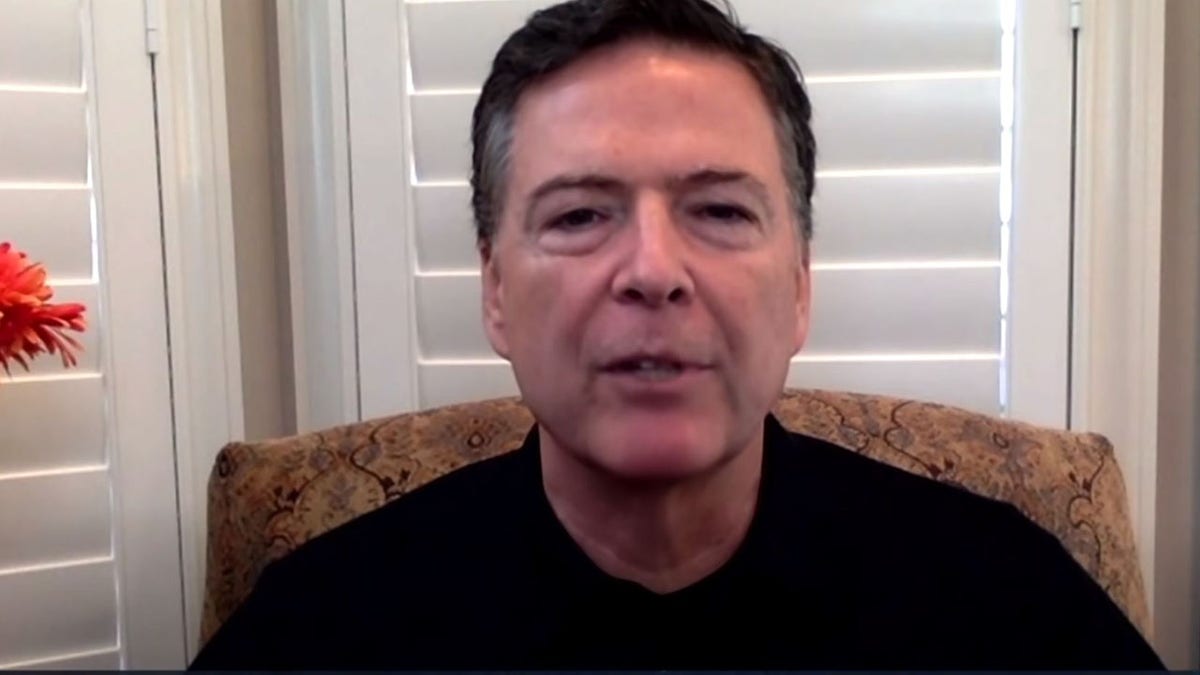
James Comey (BBC/YouTube)
James Comey, former FBI director
James Comey would use this contrived intelligence to green-light the investigations that overwhelmed the first Trump term. The FBI was aware early that the Steele dossier was an unreliable political hit job funded by the Clinton campaign. Moreover, the CIA told the FBI that Trump associate Carter Page was a U.S. intelligence asset, not a Russian spy. The FBI ignored such countervailing intelligence, violated protocols, and lied to a federal court to maintain the Russian investigation.
In an interview with Fox's Bret Baier, Comey was asked about the lack of evidence of "Russian collusion." Comey dismissed the question by saying "collusion's not a word that I'm familiar with." Putting aside the lunacy of that statement, Comey then says the question is whether Americans were "in cahoots with the foreign intelligence activities." It appears "cahoots" is a word he is familiar with. He then denied knowing, in April 2018, that the Clinton campaign had funded the report. Comey routinely seems unfamiliar with terms or facts that contradicted his investigating Trump, even years later.
Comey repeatedly testified to a lack of memory on key decisions made in the Russian investigation. However, documents show that it was Comey who pushed back on a planned statement by Clapper, stating that they had not determined the dossier to be reliable.
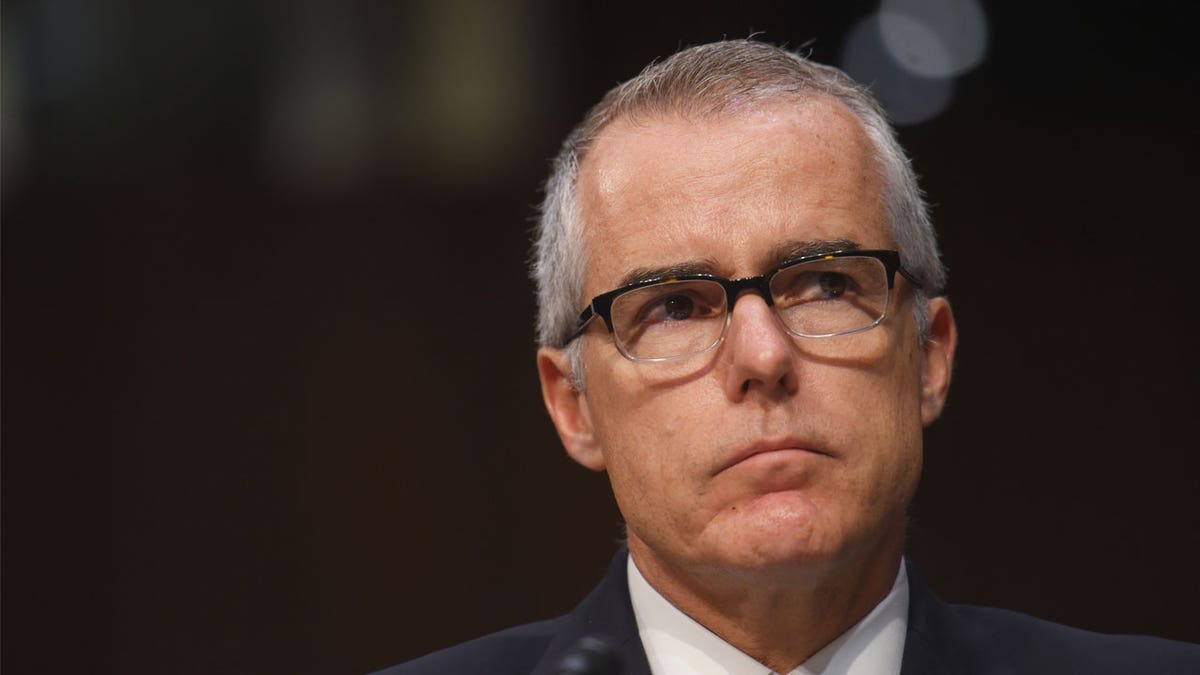
Former FBI Deputy Director Andrew McCabe. (Jahi Chikwendiu/The Washington Post via Getty Images)
Andrew McCabe, former acting FBI director
Andrew McCabe, now a CNN contributor, was fired after career Justice Department officials found that the former acting FBI director not only lied to investigators but deserved to be fired. That recommendation was reportedly embraced by the career officials in the inspector general’s office. He was accused of lying four times, including twice under oath.
Not surprisingly, McCabe makes appearances in the new disclosures. He is not only present at critical meetings, but it also appears that McCabe was allegedly responsible for blocking congressional investigators from interviewing the FBI analysts who supported Brennan and drafters of the controversial ICA. Congress alleged that at least 30 FBI employees associated with the dossier were walled off by McCabe.
These and other names are not new. As the media was spreading the false narrative of Russian collusion, many of these figures knew that there was no evidence of such collusion. They said nothing.
CLICK HERE FOR MORE FOX NEWS OPINION
Instead, after Obama ordered a new assessment effectively flipping the conclusions of the earlier assessment, anonymous sources leaked the false narrative to the media, which eagerly ran with the story.
While leaks of the false narrative were rampant, none of the actual facts were leaked to the media. In the meantime, figures like then Rep. Adam Schiff, now a Democratic senator from California, continued to claim, even after Special Counsel Robert Mueller rejected evidence of collusion, that he had secret evidence to the contrary in the House Intelligence Committee. Schiff never revealed that evidence, and the public now knows that the intelligence community rejected the collusion claims from the outset.
The public is now learning about the real Russian conspiracy and its key players. It was the most infamous -- and successful -- political hit job in history. The same media that pushed the false claims are now, again, imposing a news blackout as they did with the Hunter Biden laptop. The problem is that the truth, like water, tends to find a way out. That trickle just turned into a flood for the architects of the Russian collusion hoax.
Jonathan Turley is a Fox News Media contributor and the Shapiro Professor of Public Interest Law at George Washington University. He is the author of "The Indispensable Right: Free Speech in an Age of Rage" (Simon & Schuster, June 18, 2024).
Source: https://www.foxnews.com/opinion/jonathan-turley-key-players-russia-collusion-hoax-why-theyre-sweating-now



